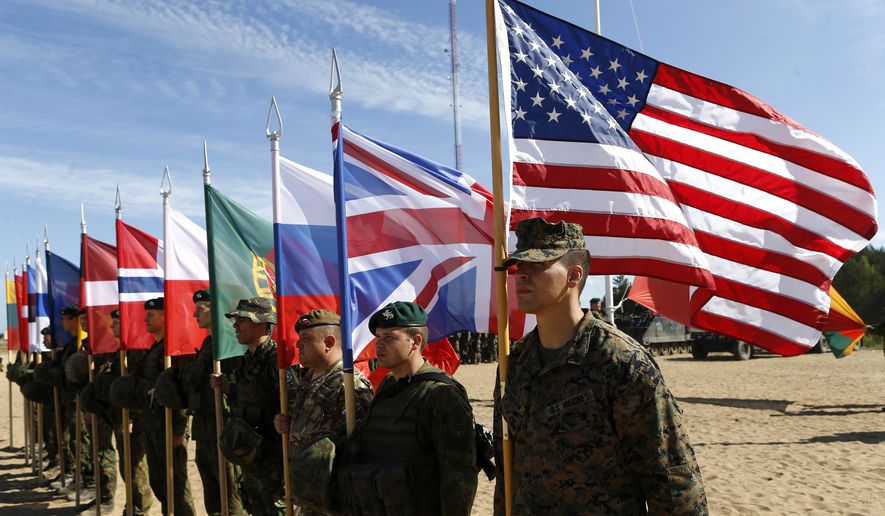The Navy is joining almost 20 other NATO countries in a half-century-old annual naval exercise near Russia’s front door.
The annual BALTOPS (Baltic Operations) maneuvers that kicked off Sunday are considered the premier maritime-focused exercise in the Baltic region. Organizers say it is meant to “increase interoperability and enhance flexibility” among the participants.
From June 6-18, the Navy will take part in a variety of activities, ranging from air defense and amphibious operations to mine-countermeasure drills.
Vice Adm. Gene Black, commander of the U.S. 6th Fleet, called BALTOPS “an exercise that sets the foundation of interoperability across the [North Atlantic] Alliance.”
He also serves as commander of NATO’s Naval Striking and Support Forces, and will command the maneuvers from the headquarters in Portugal, officials said.
The BALTOPS maneuvers began in 1972, when NATO’s adversary was the former Soviet Union. But even after 50 years, Russia remains critical of the operation.
“Provocative maneuvers of BALTOPS close to the (Russian) border (will) raise tensions and risks of unintentional incidents (and) lead to militarization of the Baltics,” the Russian Embassy in Washington tweeted. “These actions have nothing in common with the claim of the (U.S.) Navy.”
BALTOPS 50 will consist of two, at-sea training phases and the final tactical phase of the exercise. The participants will provide 40 ships, 60 aircraft and 4,000 personnel. The Marines also will take part in an “amphibious demonstration” in Lithuania, organizers said.
“Lessons learned in BALTOPS enable international strike group operations, advanced missile defense capabilities and seamless surface action group missions,” Vice Adm. Black said.
NATO ships and aircraft will transit through the Danish Straits during the first six days of BALTOPS 50. They will be focusing on maritime operations in critical checkpoints and ensuring freedom of navigation in the region, officials said.
The BALTOPS maneuvers have evolved over the years. This year it will incorporate defensive cyber warfare tactics and procedures as the NATO nations train to fight in the era of modern warfare, officials said.
• Mike Glenn can be reached at mglenn@washingtontimes.com.




Please read our comment policy before commenting.